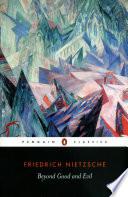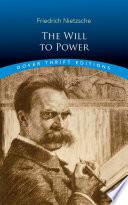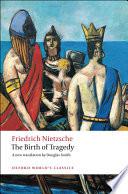Works
Human, All Too Human
Friedrich NietzscheThus Spoke Zarathustra
Friedrich Nietzsche
Twilight of the Idols
Friedrich NietzscheOn the Genealogy of Morality
Friedrich NietzscheUntimely Meditations
Friedrich Nietzsche
Beyond Good and Evil
Friedrich Nietzsche
The Will to Power
Friedrich Nietzsche
The Antichrist
Friedrich Nietzsche
The Birth of Tragedy
Friedrich NietzscheEcce homo
Friedrich NietzschePhilosophy in the Tragic Age of the Greeks
Friedrich NietzscheDionysian-Dithyrambs
Friedrich NietzscheThe Gay Science
Friedrich NietzscheSils-Maria
Friedrich NietzscheGod is dead
Friedrich Nietzsche
The Case of Wagner
Friedrich NietzscheThe Dawn
Friedrich NietzscheFamous Friedrich Nietzsche Quotes
Variant: The real man wants two different things: danger and play. Therefore he wants woman, as the most dangerous plaything.
Source: Thus Spoke Zarathustra
“Silence is worse; all truths that are kept silent become poisonous.”
Source: Thus Spoke Zarathustra
“Those who dance appear insane to those who cannot hear the music.”
Misattributed
First recorded appearance: Germaine de Staël's On Germany (1813). ". . . sometimes even in the habitual course of life, the reality of this world disappears all at once, and we feel ourselves in the middle of its interests as we should at a ball, where we did not hear the music; the dancing that we saw there would appear insane." There are several other pre-Nietzsche examples, indicating that the phrase was widespread in the nineteenth-century; it was referred to in 1927 as an "old proverb".
Friedrich Nietzsche Quotes about life
Niemand kann dir die Brücke bauen, auf der gerade du über den Fluß des Lebens schreiten mußt, niemand außer dir allein.
“Schopenhauer as educator,” § 3.1, R. Hollingdale, trans. (1983), p. 129
Untimely Meditations (1876)
“Without music, life would be a mistake.”
Ohne Musik wäre das Leben ein Irrtum.
Maxims and Arrows, 33
Source: Twilight of the Idols (1888)
Sec. 232
Variant: We have no dreams at all or interesting ones. We should learn to be awake the same way — not at all or in an interesting manner.
Source: The Gay Science (1882)
Friedrich Nietzsche: Trending quotes
Sec. 34
The Antichrist (1888)
all Jews become mawkish when they moralize
Sec. 357
The Gay Science (1882)
Friedrich Nietzsche Quotes
“The higher we soar the smaller we appear to those who cannot fly.”
Source: Thus Spoke Zarathustra
Source: Thus Spoke Zarathustra
I.303 http://books.google.com/books?id=Nl-vaAdJD3MC&q="we+often+contradict+an+opinion+for+no+other+reason+than+that+we+do+not+like+the+tone+in+which+it+is+expressed"&pg=PA137#v=onepage
Human, All Too Human (1878)
“The brief madness of bliss is experienced only by those who suffer the most deeply.”
Source: This Spoke Zarathustra (Tak pravil Zarathustra)
Man verdirbt einen Jüngling am sichersten, wenn man ihn anleitet, den Gleichdenkenden höher zu achten, als den Andersdenkenden.
The Dawn, Sec. 297
“Be careful, lest in casting out your demon you exorcise the best thing in you.”
Variant: Be careful when you cast out your demons that you don’t throw away the best of yourself.
“What does your conscience say? — "You shall become the person you are."”
Was sagt dein Gewissen?
'Du sollst der werden, der du bist.'
Variant translation: Become who you are.
It is noted here http://www.anonymityone.com/Faq97.htm, here http://www.google.it/search?num=100&hl=en&safe=off&q=%22Become%20who%20you%20are%22+Pindar+Nietzsche&um=1&ie=UTF-8&tbo=u&tbm=bks and here http://www.google.it/search?num=100&hl=it&safe=off&biw=1440&bih=690&q=%22%28become+what+you+are%29+after+the+ancient+Greek+poet+Pindar.+See+Ecce+Homo+%28Nietzsche%29%22 that the phrase was first used by Pindar, and was merely re-used by Nietzsche.
Sec. 270
The Gay Science (1882)
“Ultimately, it is the desire, not the desired, that we love.”
Variant: One loves ultimately one's desires, not the thing desired.
Source: Beyond Good and Evil
“He who climbs upon the highest mountains laughs at all tragedies, real or imaginary.”
Source: Thus Spoke Zarathustra
“Of all that is written I love only what a man has written in his own blood.”
Source: Thus Spake Zarathustra: A Book for All and None
Sec. 2
The Antichrist (1888)
“What does not kill him, makes him stronger.”
… was ihn nicht umbringt, macht ihn stärker
"Why I Am So Wise", 2
Cf. Twilight of the Idols (1888), "Maxims and Arrows", aphorism 8: What does not destroy me, makes me stronger.
Ecce Homo (1888)
“There are no facts, only interpretations.”
Notebooks (Summer 1886 – Fall 1887)
Variant translation: Against that positivism which stops before phenomena, saying "there are only facts," I should say: no, it is precisely facts that do not exist, only interpretations…
As translated in The Portable Nietzsche (1954) by Walter Kaufmann, p. 458
“The knight of knowledge must be able not only to love his enemies, but also to hate his friends.”
Der Mensch der Erkenntniss muss nicht nur seine Feinde lieben, er muss auch seine Freunde hassen können.
Foreword, in the Oscar Levy authorized translation.
Variant translations:
The man of knowledge must be able not only to love his enemies but also to hate his friends.
Ecce Homo (1888)
I.580
Human, All Too Human (1878)
“Thoughts are the shadows of our feelings — always darker, emptier, simpler.”
Sec. 179
The Gay Science (1882)
“I would believe only in a God that knows how to dance.”
Variant: I would only believe in a god who could dance.
Source: Thus Spoke Zarathustra
“What does man actually know about himself?”
On Truth and Lie in an Extra-Moral Sense (1873)
Context: What does man actually know about himself? Is he, indeed, ever able to perceive himself completely, as if laid out in a lighted display case? Does nature not conceal most things from him — even concerning his own body — in order to confine and lock him within a proud, deceptive consciousness, aloof from the coils of the bowels, the rapid flow of the blood stream, and the intricate quivering of the fibers! She threw away the key.
“We do not believe in any right that is not supported by the power of enforcement”
Sec. 120 (Spring-Fall 1887)
The Will to Power (1888)
Context: More natural is our position in politics: We see problems of power, of one quantum of power against another. We do not believe in any right that is not supported by the power of enforcement: we feel all rights to be conquests.
“There is more wisdom in your body than in your deepest philosophy.”
Source: Thus Spoke Zarathustra
II.293, maxim 358 http://books.google.kz/books?id=Nl-vaAdJD3MC&pg=PA293&dq=%22In+the+mountains+of+truth+you+will+never+climb+in+vain%22&hl=en
Human, All Too Human (1878)
“Blessed are the forgetful; for they get over their stupidities, too.”
Variant: Blessed are the forgetful, for they get the better even of their blunders.
Source: Beyond Good and Evil
Essay 3, Aphorism 16
On the Genealogy of Morality (1887)
“There is not enough religion in the world to destroy the world’s religions.”
Variant: There is not enough love and goodness in the world to permit giving any of it away to imaginary beings.
Source: Human, All Too Human
Sec. 144 (Notebook N VII 1. April - June 1885, KGW VII, 3.198, KSA 11.478)
The Will to Power (1888)
“I would not know what the spirit of a philosopher might wish more to be than a good dancer.”
Sec. 381
The Gay Science (1882)
